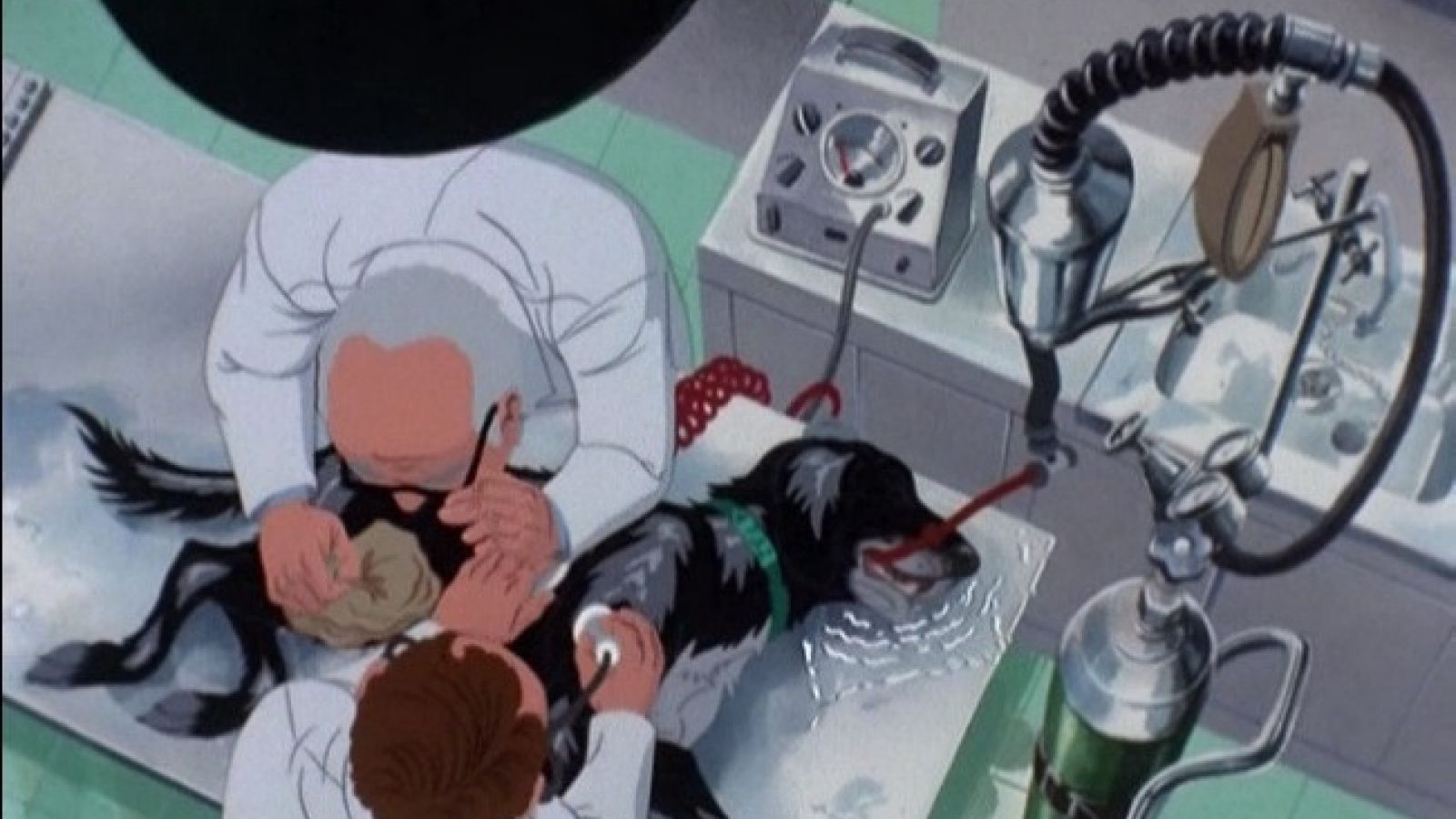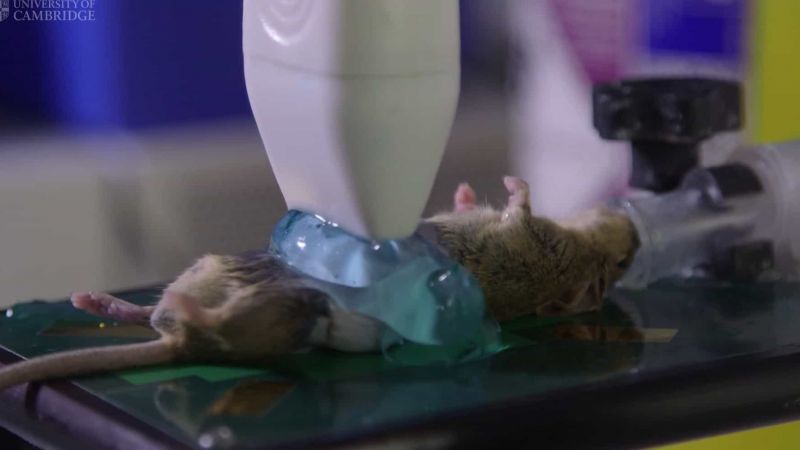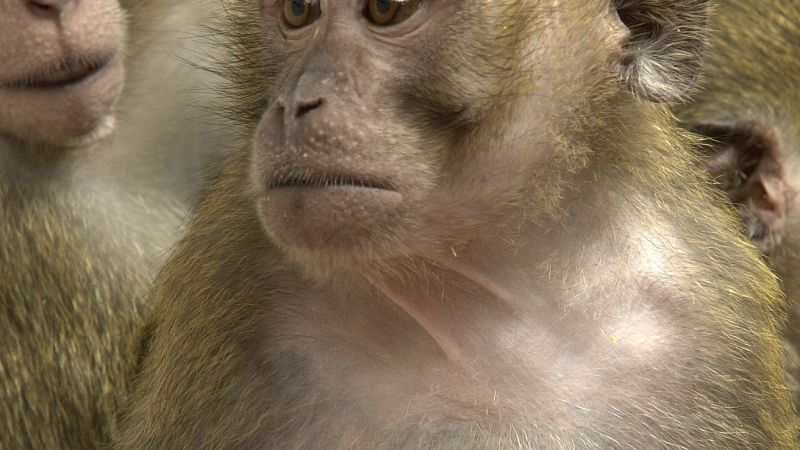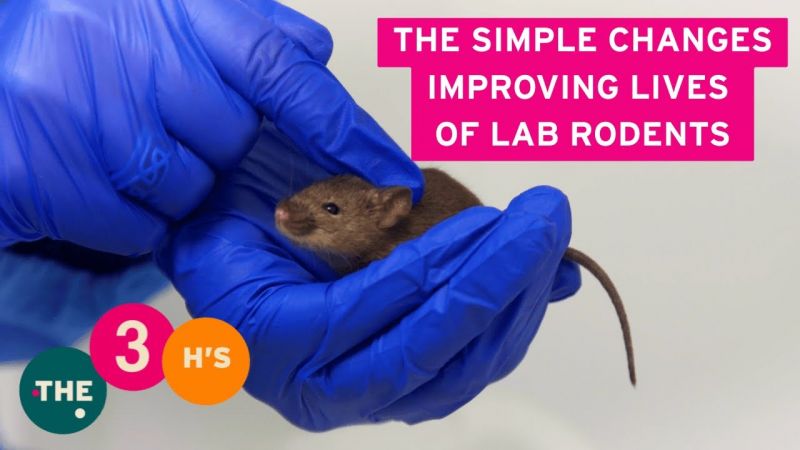
 This week John Meredith, UAR’s Head of Education and Outreach, ponders some of the less accurate depictions of animal research in the movies.
This week John Meredith, UAR’s Head of Education and Outreach, ponders some of the less accurate depictions of animal research in the movies.
When you talk about animal research in public you get a lot of very interesting and unexpected questions. But I have never before been asked which movie representations of animal research I thought were the worst. It seemed like a question worth answering. So here, for the first time, are the UAR top ten worst animal research movies. Have we missed any other contenders? Let us know.
In reverse order:
1. The Amazing Spider Man
Starting us off is Rhys Ifans becoming more than usually lizard-like in The Amazing Spider Man. It’s the usual thing of science affronting Nature by playing god, tampering with DNA: Nature is predictably unimpressed and avenges itself by transforming Ifans into Lizard Man. In fact, the representation of animal research in this movie is too casual to be really bad, and the idea of researching regeneration in lizards isn’t overtly criticised until Rhys oversteps with some ill-considered self-experimentation, but as an example of the old fashioned Hollywood anti-science sub-genre of Leave It Alone, We Don’t Want To Know, it earns a place on our chart of shame, although at the ‘mostly harmless’ entry level.
2. Mimic
What if huge, super-intelligent, carnivorous, predatory cockroaches were able to disguise themselves as humans? This movie dares to ask the question. Once again, scientists have been messing about with genes, and once again innocent people are paying for it. This time the blame is clear: bad science; leave the animals alone. But it’s only roaches and the movie doesn’t really care about them, and anyway, we all secretly love the idea of gigantic, man-eating, insects disguised as Humphrey Bogart, so we can’t be too cross about it.
3. Piranha
More genes, more mayhem. It’s a spoof and the evil science is played for laughs but it’s still a version of the same old story: scientists irresponsibly tampering with animals and the animals getting their own back. In spades. It’s all too silly and funny to get upset about but as the whole animal research world knows, vertebrate fish must be treated with greater consideration than invertebrate cockroaches so it scores one higher on the chart than the more moralising Mimic.
4. Jurassic Park
Because dinosaurs are animals too.
5. The Island of Dr Moreau
Many people’s first introduction to the fictionalised horrors of animal experimentation HG Wells’ classic novel has received a number of film treatments and all of them are stinkers. The maverick Dr Moreau is yet another celluloid scientist who lacks the finer moral instincts of the popcorn gobblers who sit in the dark to peer at his hideous experiments. Moreau has been driven from polite society because of his addiction to gruesome vivisection and has dedicated his life to experimenting with animal-human hybrids that, frankly, you would not want to have for dinner, in either sense. The book was, in part, motivated by anti-animal research activism but the movies based on it are not really that political and mostly replace Wells’s moralising with a lot of Look! Monsters! So a mid-table position for the evil doctor despite painting the lurid mental picture of animal research that still seems to obsess so many abolitionist activists.
6. I am legend
The only entry that offers a positive picture of the benefits of research with animals. Scientist Will Smith is immune to a virus that seems to have wiped out the rest of humanity except for some cute women and children. Which means he has to find the cure. He only has about 110 minutes to do it but he is Will Smith. So that is what he does, testing treatment after treatment on rats until one of them survives and hey presto! So why worse than the monsters of Dr Moreau? Because the misleading idea that animal models are a simple translational model for human disease, that if it works on rats it is ready for the pharmacy counter at Boots, can do more damage for public understanding of animal research than any amount of fantasy horror. Animal research is essential,but we have to be clear about what it can do, and what it can’t and unrealistic expectations play into the hands of those people who thrive on dishonest simplification.

The Plague Dog
7. Deep Blue Sea
For once the scientists aren’t evil. In fact they are trying to find a cure for Alzheimer’s. Unfortunately they make the schoolboy error of going straight from mice to sharks and the results are predictable: super-intelligent sharks that are still, somehow, demented. And extremely angry. It is not obvious what the sharks have to be angry about given the IQ boost but the filmic message is clear: tampering with animals is unnatural and will have terrible consequences. Better put up with the dementia. This one scores especially high because of the traumatic potential of confusing it with The Deep Blue Sea Terrence Rattigan’s tender evocation of a doomed love affair between the wife of a judge and a fighter pilot.
8. Man’s Best Friend
Heroic animal activists let loose a genetically modified dog from a secret laboratory run by the malevolent Dr Jarret (what good could come from a name like that?) and live to regret it. Made in 1993 when anti-animal research activism was in its most dangerous phase this movie really stirs the pot with its thoughtless misrepresentation of animal researchers as unfeeling and immoral and animal activists as sole defenders of reason. It is played for laughs here and there but so much provides the template for so many anti-animal research misunderstandings that it deserves its high position on our chart.
9. Rise of the Planet of the Apes
Great apes like chimpanzees are barely used in animal research anywhere in the world (it is illegal to use them in EU countries) and monkeys make up a tiny proportion of lab animals. But you wouldn’t know that from the movies. Rise of the Planet of the Apes is typical in its depiction of chimps being kept in barren, cramped conditions and casually submitted to stressful and painful medical procedures in the pursuit of profit. It is no wonder they hold a revolution. No animal researcher would recognise anything that happens in the movie but many of the millions of viewers will have confirmed in their minds that this is the secret truth of the animal house, helping to poison the well of public debate. It does a lot of damage. Really it should stop. Where is Charlton Heston when you need him?
10. The Plague dogs
And at the top of the chart, we have the daddy of all anti-animal research movies The Plague Dogs. This animated feature made such an impact on so many children that it is quite possible that it had a direct effect on the criminal activism that emerged in the years after its release in 1983. It is the stirring story of two dogs that have escaped from a research facility and who spend the rest of the movie in desperate flight from their captors. The researchers are represented as cruel, the research as unnecessary, driven only by cold, scientific curiosity and causing horrific pain and suffering. Who wouldn’t be moved to oppose this sort of thing? Except this sort of thing isn’t the sort of thing that happens and the opposition came very close to shutting down research into terrible, debilitating human diseases and therefore condemning many people to unnecessary suffering. Real, not cartoon suffering. It would be nice if film makers would begin to realise that this matters, that this is too important a subject to treat casually or, worse, to misrepresent. But we are not holding our breath.
Last edited: 6 April 2022 08:34



